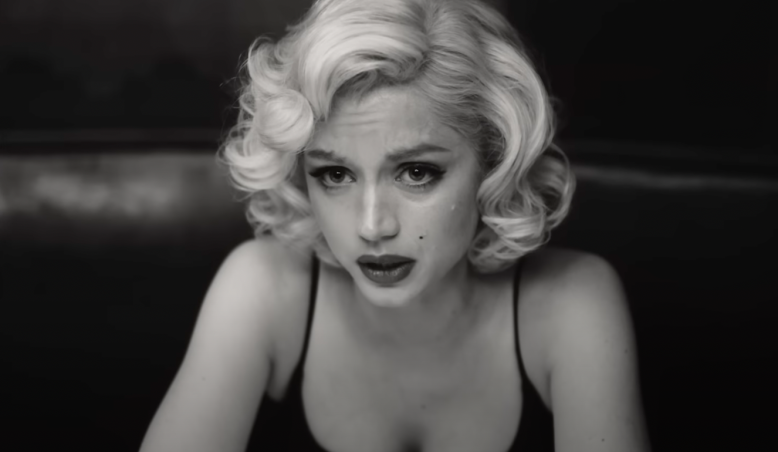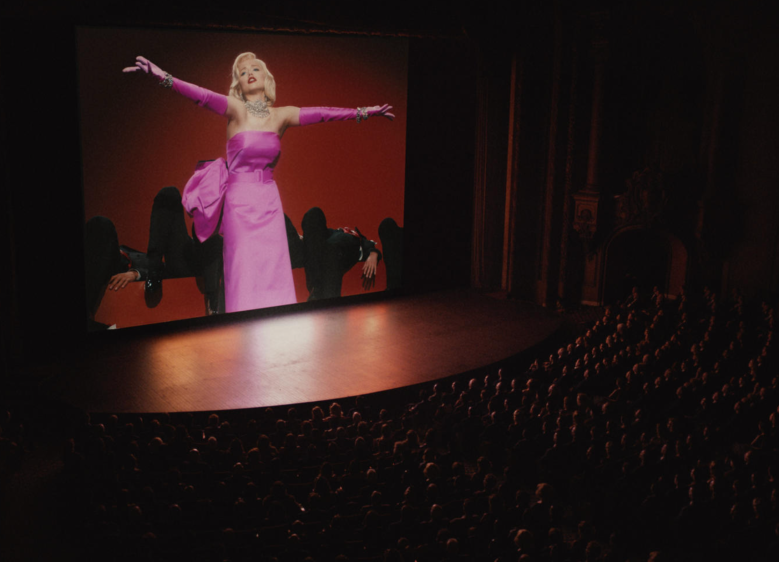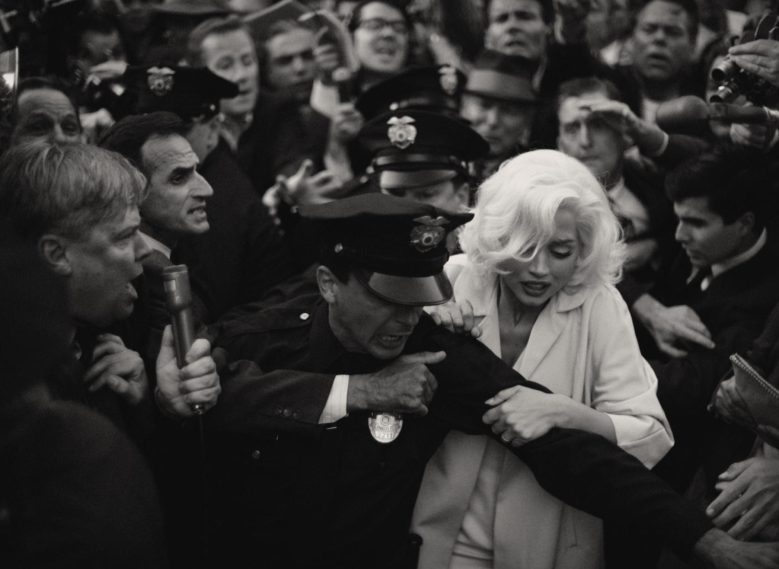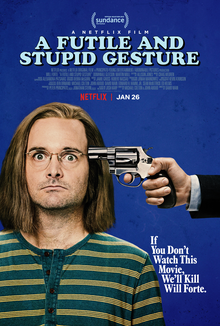Images of Marilyn Monroe are the most replicated of any actress to emerge since the dawn of cinema. Her peroxide curls, cupid’s bow pout, and va-va-voom figure are recognizable to the point that her marketing potential has long since overwhelmed the matter of who she was as a person. To take a swing at saying — or showing — something resonant about the woman born Norma Jeane Mortenson, a storyteller would have to go to lengths far greater than Andrew Dominik is able to span in his bizarre, miserabilist biopic.
Much like Asaf Kapadia did with his documentary, “Amy,” Dominik critiques the world for reducing his subject down to her topline assets — and then treats her in exactly the same way. His Marilyn is a sexy, breathy blonde with daddy issues. And that’s all, folks.
Well, not quite all, as “Blonde” sets out to show a lifetime of victimization and exploitation. The film is Dominik’s finger pointed at everyone who had a hand traumatizing his leading lady, from her mother trying to drown her in the bath aged 7 to her death from an overdose of barbiturates at 36 after being used and abused by the Hollywood machine.
Drawing from Joyce Carol Oates’ impressionistic “fictionalized” novel of the same name, Dominik brings to life chronological snapshots of the worst moments in Monroe’s life, focusing on the yearning she felt as result of having an absent father and a mentally ill mother, the pregnancies that never led to babies, and the violence and cruelty she suffered at the hands of powerful men. It’s safe to say Dominik will not receive a Christmas card from either the JFK or the Joe DiMaggio estate this year.

“Blonde”
screenshot/Netflix
Star Ana de Armas’ uncanny resemblance to Marilyn takes the film a long way. If Dominik had thought as much about actually interpreting his character opposed to resurrecting her physically, “Blonde” could have a tour de force. Famous archive photographs of Marilyn wearing a black turtleneck and cropped trousers, a white dress with a plunging neckline, and even when she cheerfully posed naked are amongst the painstakingly recreated looks given locomotion by De Armas with the help of blue contact lenses and a wig. (Gary Archer is credited for dental prosthetics, suggesting just how far measures were taken to create the eerie doppelgänger, all the way into her mouth.)
The film is obsessed with Monroe’s wide-eyed beauty, and it is apt to capture the quality that enabled Norma to become Marilyn, giving her a passport out of poverty and, on the flip-side, luring in predators of all descriptions. Yet, close-up after close-up after close-up eventually starts to feel less like a knowing nod to her powers, and more like the director trying to have his cake and eat it.
DOP Chayse Irvin does powerful work when the script allows him to capture something other than feminine charms. One early tableau from Norma’s childhood features her mother Gladys (Julianne Nicholson) in the background, framed through a latticed door as she plays the piano while, in the foreground, a faded poster of Charlie Chaplin’s “City Lights” flaps on the wall. Shortly afterwards a fire rages throughout the neighborhood. Little Norma and Gladys drive through the flames, while the “HOLLYWOOD” sign sits in the horizon, untouched by the carnage, symbolizing the possibility of something better.
As interpreted through Dominik (who also adapted the screenplay himself), Norma will never reach that something better, not even for a second. He defines her strictly through what she does not have — direction, love, a dad — resulting in a gaping lack to De Armas’ earnestly committed performance; she is playing a character with no autonomy. Her task — which she carries off beautifully, tearfully, and often toplessly — is to show the wounds inflicted on her, like sentient memory foam.

“Blonde”
Netflix
“Like watching a mental patient. Not acting. Not technique,” comments one member of the production after the then-unknown Marilyn’s emotional audition for “Don’t Bother To Knock” (1952). Dominik never presents an alternate account for his leading lady’s acting prowess, nor salutes her own role in her image creation. Her time as a diligent student with Lee Strasberg is reduced down to an oft-flashed back to black-and-white sequence of Marilyn and other students repeating a line about “carrying a circle of light.” He presents her as someone for whom acting was an innate untutored gift, rather than as a student intent on mastering her craft. She is a savant, a babe in the woods, a Balthazar the donkey with ass to spare.
A motif running through “Blonde” is the distinction between Norma, who is real, and Marilyn, who is not. Norma is clear that she is not Marilyn and craves male companions who see beyond the sex symbol alter-ego that she slips on and off. As her career is taking off, she falls into a menage a trois with rakish dissolutes, Charlie Chaplin Jr. (Xavier Samuel) and Edward G. Robinson Jr. (Evan Williams) for what will prove the high watermark of her relationships with men.
All three are beautiful people who share a pervasive sadness as a result of being abandoned. Per EGR, “We’re the juniors of men who never wanted us.” All do their utmost to sublimate sorrow through the pleasures of the flesh. One fabulous transition involves an orgasming Norma, head thrown back, clasping at a bed that becomes waterfalls overlaid by the title cards for “Niagara.” The phrase, “A RAGING TORRENT OF EMOTION,” fills the cinema screen as Norma watches nervously in the audience.

“Blonde”
Dominik’s visual flourishes are not always as successful. There has been early hype about the “womb camera” as we see the world from the POV of an unborn baby. This, at least, has the merit of being camp. More tedious is the over-reliance on slow-motion shots of Marilyn overwhelmed by crowds of snarling paparazzi to the sound of camera bulbs flashing. Dominik really wants to put across that she was oppressed through both force and neglect, and over-uses flashbacks to both a sexual assault and a photograph of the man her mum presented as her dad. A relentless sound design by the usually exquisite Nick Cave and Warren Ellis is misjudged, steamrolling through a film that already lacks nuance.
As Norma becomes increasingly troubled and fearful of ending up like her mother, hope is kept alive by letters that sporadically arrive from a man who signs off as her “tearful daddy.” He dangles the possibility of their meeting without ever committing to a date. These letters move her more than her marriage to either an abusive Joe DiMaggio (Bobby Cannavale) or a gentile Arthur Miller (Adrien Brody), much older men whom she addresses as “Daddy” in an act of Technicolor displacement. The Miller marriage is the only other reprieve presented in her sprint towards the grave, and Brody delivers a gentle intellectualism that feels like a port in a storm.
It’s not that Andrew Dominik has made an implausible film about the experience of a poor young beauty haunted by fears of madness who was chewed up by the Hollywood machine, the issue is that he has made a film inspired by Marilyn Monroe where she is monotonously characterized as a victim. To watch any of her movies is to feast on a luminous performer whose intelligence is sublimated beneath a knowingly hypnotic physical affect. Her legacy is still best preserved through her talents, rather than through a film that might as well be another face printed by Andy Warhol’s factory — an X-rayed version, so that instead of bright pop art colors, the stencil is simply of a skull.
“Blonde” premiered at the 2022 Venice Film Festival. Netflix will release the film in select theaters on Friday, September 16 and on its streaming platform on Wednesday, September 28.
Much like Asaf Kapadia did with his documentary, “Amy,” Dominik critiques the world for reducing his subject down to her topline assets — and then treats her in exactly the same way. His Marilyn is a sexy, breathy blonde with daddy issues. And that’s all, folks.
Well, not quite all, as “Blonde” sets out to show a lifetime of victimization and exploitation. The film is Dominik’s finger pointed at everyone who had a hand traumatizing his leading lady, from her mother trying to drown her in the bath aged 7 to her death from an overdose of barbiturates at 36 after being used and abused by the Hollywood machine.
Drawing from Joyce Carol Oates’ impressionistic “fictionalized” novel of the same name, Dominik brings to life chronological snapshots of the worst moments in Monroe’s life, focusing on the yearning she felt as result of having an absent father and a mentally ill mother, the pregnancies that never led to babies, and the violence and cruelty she suffered at the hands of powerful men. It’s safe to say Dominik will not receive a Christmas card from either the JFK or the Joe DiMaggio estate this year.

“Blonde”
screenshot/Netflix
Star Ana de Armas’ uncanny resemblance to Marilyn takes the film a long way. If Dominik had thought as much about actually interpreting his character opposed to resurrecting her physically, “Blonde” could have a tour de force. Famous archive photographs of Marilyn wearing a black turtleneck and cropped trousers, a white dress with a plunging neckline, and even when she cheerfully posed naked are amongst the painstakingly recreated looks given locomotion by De Armas with the help of blue contact lenses and a wig. (Gary Archer is credited for dental prosthetics, suggesting just how far measures were taken to create the eerie doppelgänger, all the way into her mouth.)
The film is obsessed with Monroe’s wide-eyed beauty, and it is apt to capture the quality that enabled Norma to become Marilyn, giving her a passport out of poverty and, on the flip-side, luring in predators of all descriptions. Yet, close-up after close-up after close-up eventually starts to feel less like a knowing nod to her powers, and more like the director trying to have his cake and eat it.
DOP Chayse Irvin does powerful work when the script allows him to capture something other than feminine charms. One early tableau from Norma’s childhood features her mother Gladys (Julianne Nicholson) in the background, framed through a latticed door as she plays the piano while, in the foreground, a faded poster of Charlie Chaplin’s “City Lights” flaps on the wall. Shortly afterwards a fire rages throughout the neighborhood. Little Norma and Gladys drive through the flames, while the “HOLLYWOOD” sign sits in the horizon, untouched by the carnage, symbolizing the possibility of something better.
As interpreted through Dominik (who also adapted the screenplay himself), Norma will never reach that something better, not even for a second. He defines her strictly through what she does not have — direction, love, a dad — resulting in a gaping lack to De Armas’ earnestly committed performance; she is playing a character with no autonomy. Her task — which she carries off beautifully, tearfully, and often toplessly — is to show the wounds inflicted on her, like sentient memory foam.

“Blonde”
Netflix
“Like watching a mental patient. Not acting. Not technique,” comments one member of the production after the then-unknown Marilyn’s emotional audition for “Don’t Bother To Knock” (1952). Dominik never presents an alternate account for his leading lady’s acting prowess, nor salutes her own role in her image creation. Her time as a diligent student with Lee Strasberg is reduced down to an oft-flashed back to black-and-white sequence of Marilyn and other students repeating a line about “carrying a circle of light.” He presents her as someone for whom acting was an innate untutored gift, rather than as a student intent on mastering her craft. She is a savant, a babe in the woods, a Balthazar the donkey with ass to spare.
A motif running through “Blonde” is the distinction between Norma, who is real, and Marilyn, who is not. Norma is clear that she is not Marilyn and craves male companions who see beyond the sex symbol alter-ego that she slips on and off. As her career is taking off, she falls into a menage a trois with rakish dissolutes, Charlie Chaplin Jr. (Xavier Samuel) and Edward G. Robinson Jr. (Evan Williams) for what will prove the high watermark of her relationships with men.
All three are beautiful people who share a pervasive sadness as a result of being abandoned. Per EGR, “We’re the juniors of men who never wanted us.” All do their utmost to sublimate sorrow through the pleasures of the flesh. One fabulous transition involves an orgasming Norma, head thrown back, clasping at a bed that becomes waterfalls overlaid by the title cards for “Niagara.” The phrase, “A RAGING TORRENT OF EMOTION,” fills the cinema screen as Norma watches nervously in the audience.

“Blonde”
Dominik’s visual flourishes are not always as successful. There has been early hype about the “womb camera” as we see the world from the POV of an unborn baby. This, at least, has the merit of being camp. More tedious is the over-reliance on slow-motion shots of Marilyn overwhelmed by crowds of snarling paparazzi to the sound of camera bulbs flashing. Dominik really wants to put across that she was oppressed through both force and neglect, and over-uses flashbacks to both a sexual assault and a photograph of the man her mum presented as her dad. A relentless sound design by the usually exquisite Nick Cave and Warren Ellis is misjudged, steamrolling through a film that already lacks nuance.
As Norma becomes increasingly troubled and fearful of ending up like her mother, hope is kept alive by letters that sporadically arrive from a man who signs off as her “tearful daddy.” He dangles the possibility of their meeting without ever committing to a date. These letters move her more than her marriage to either an abusive Joe DiMaggio (Bobby Cannavale) or a gentile Arthur Miller (Adrien Brody), much older men whom she addresses as “Daddy” in an act of Technicolor displacement. The Miller marriage is the only other reprieve presented in her sprint towards the grave, and Brody delivers a gentle intellectualism that feels like a port in a storm.
It’s not that Andrew Dominik has made an implausible film about the experience of a poor young beauty haunted by fears of madness who was chewed up by the Hollywood machine, the issue is that he has made a film inspired by Marilyn Monroe where she is monotonously characterized as a victim. To watch any of her movies is to feast on a luminous performer whose intelligence is sublimated beneath a knowingly hypnotic physical affect. Her legacy is still best preserved through her talents, rather than through a film that might as well be another face printed by Andy Warhol’s factory — an X-rayed version, so that instead of bright pop art colors, the stencil is simply of a skull.
Grade: C+
“Blonde” premiered at the 2022 Venice Film Festival. Netflix will release the film in select theaters on Friday, September 16 and on its streaming platform on Wednesday, September 28.




